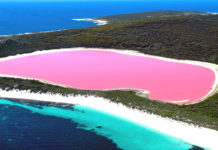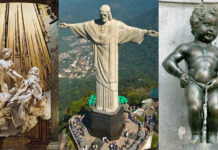‘The Trojan War’ and ‘The Odyssey’ are few of the Greek mythology you are aware of, but did you know there are also many similarities between the Greek and Indian mythology.
Just like our Brahma, Vishnu and Shiva, the Greek also have Zeus, Hades and Poseidon who rule the heaven, the underworld and the sea respectively. Unlike Zeus who is all powerful and feared by his subjects, Lord Indra is not the supreme god. Indra is depicted as vengeful and impatient in most of the story.

Greek goddess, Hera and Laxmi are similar to an extent. Since both of them represent goddesses of home and wealth prosperity. Indian goddess, Laxmi is also known as Narayani, who protects the power of Lord Narayan and Vishnu

Both Athena and Sarawati are the goddesses of wisdom and learning. They are also represented as deity of culture. The Greek goddess, Athena is also represented as goddess of war.

Both Hades and Yama represent the lord of underworld. They are associated with death and afterlife. Hades takes the soul of all to the underworld and Yama takes the souls of ordinary people to their next life.

Poseidon and Varuna are the gods of ocean. They are the protectors of aquatic creatures. Varun is also the god of water, but the Greek god of water is the Titan Oceaneus.

Haphaestus and Vishwakarma are the worker gods, who design and make weapons for the god and manufacture tools.

Ares and Karthik are represented as god of war and fighting. They both are depicted as warriors, carrying weapons as a sign of inspiration.

Kronos and Mahakala are the gods of time and space.

Smrutirekha


























